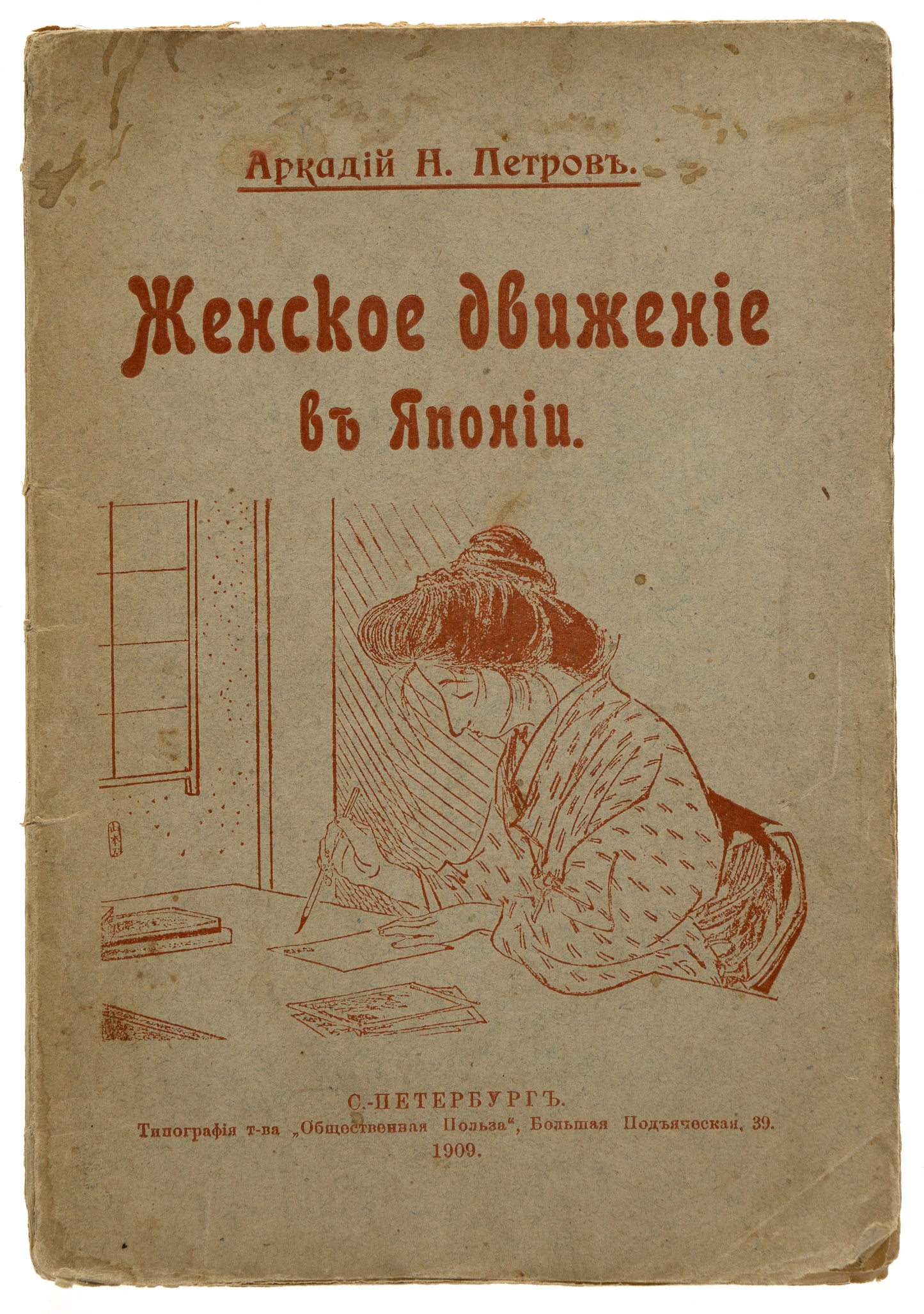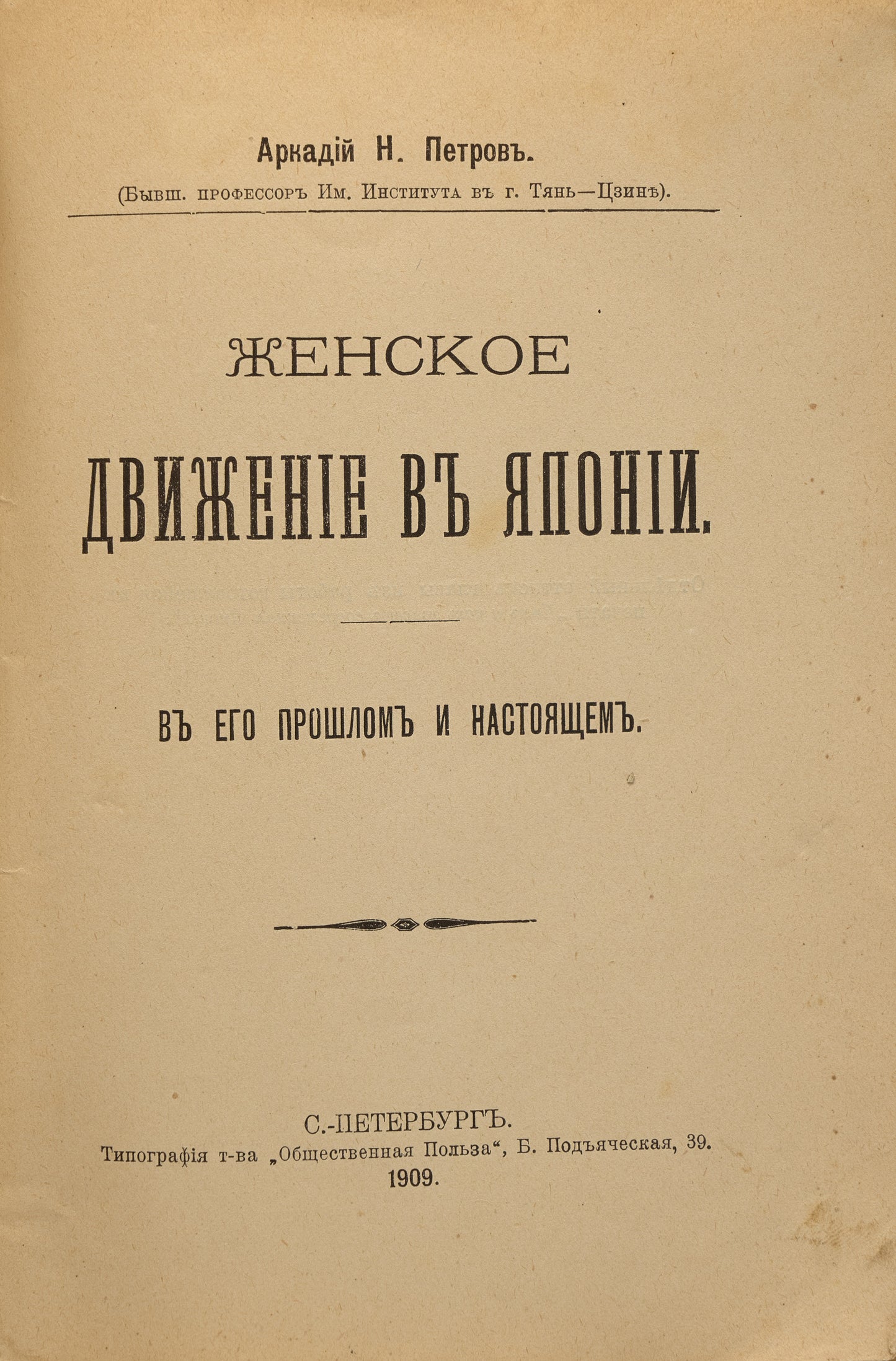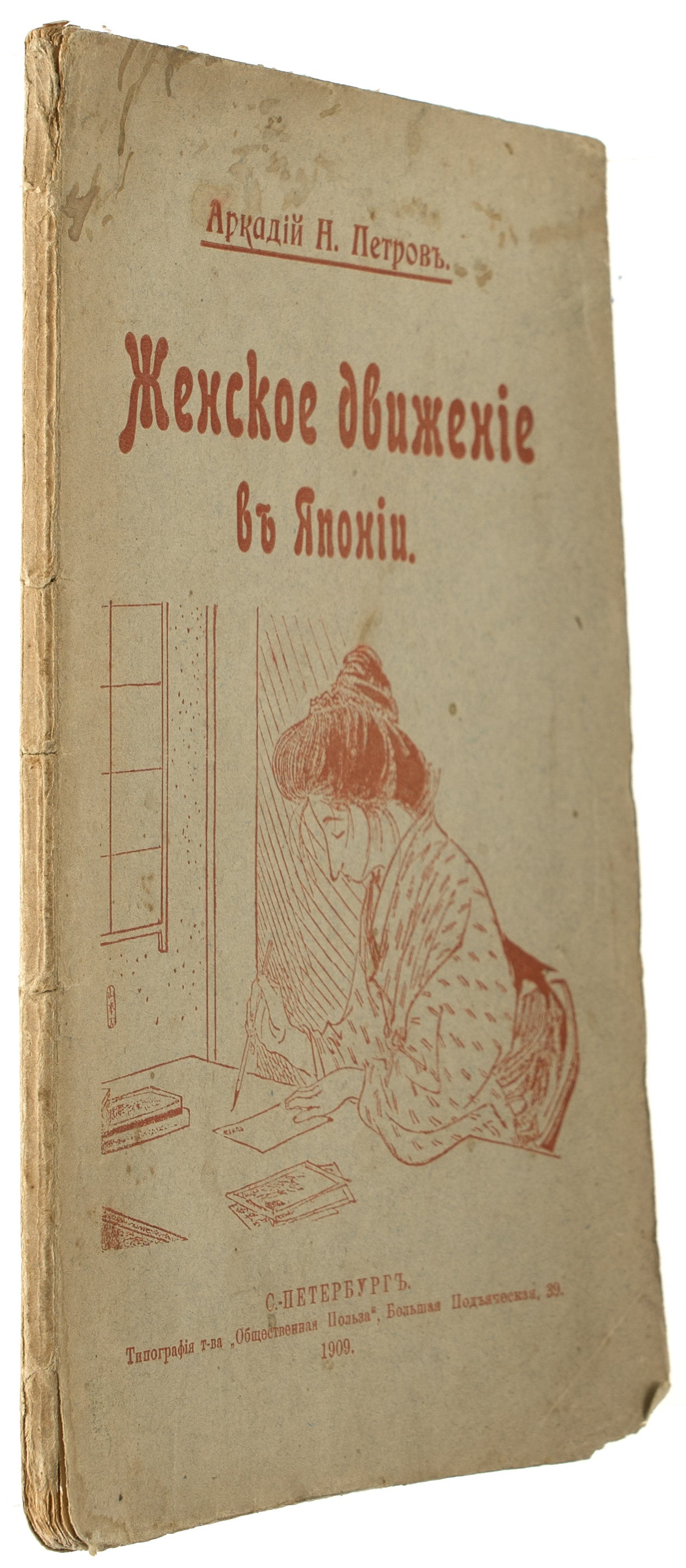Petrov, A.N.
The Women's Movement in Japan: Its Past and Present. The first original Russian work.
The Women's Movement in Japan: Its Past and Present. The first original Russian work.
Couldn't load pickup availability
Petrov, A.N. [The Women's Movement in Japan: Its Past and Present]. Zhenskoe Dvizhenie v Iaponii: V ego proshlom i nastoiashchem.
S.-Peterburg, Tip. t-va “Obshchestvennaia Pol’za”, 1909.
8vo, 100 pp.
In original pictorial wrappers. Back cover with publishing house catalog.
In good condition, wear to wrappers with some stains, small loss to front cover lower corner and spine edges, dampstaining to some pages, publishing house stamp to back cover.
The only edition. Possibly the first original Russian work focused specifically on Japanese women and their role in society.
This book is a standalone chapter from the unpublished work 'What Contemporary Japan Lives By and How' by Arkadii Nikolaevitch Petrov (1881–after 1938), a Russian economist and orientalist specializing in China and Japan.
Petrov studied at the Eastern Institute in Vladivostok, but due to his participation in a soldiers' rally, he was forced to emigrate to Japan, where he lived for a year. He later moved to China, where he became a professor at the Chinese Institute and an assistant to the Tianjin Customs Commissioner.
Based on his time in Japan, Petrov wrote this book, which focuses on the brief but significant emergence of the women's movement in Japan. He initially presented this work as a lecture in October 1908 in Saint Petersburg, in support of the St. Petersburg Women's Progressive Party. The book was later published and dedicated to two prominent feminists and activists of this party: Anna Filosofova (née Diaghileva), aunt of Sergei Diaghilev, and Anna Shabanova, a pioneering Russian pediatrician.
In this work, Petrov traces the role of women in Japan from mythology and ancient times to the early 20th century. He highlights notable Japanese female figures in politics, culture, and art, including Murasaki Shikibu, author of 'The Tale of Genji', widely regarded as one of the world's first novels. Addressing contemporary Japan, Petrov discusses the influential philosopher and women's rights advocate Fukuzawa Yukichi, as well as prominent female writers of the time, such as Higuchi Ichiyō, Japan's first professional female writer of modern literature, Kitada Usurai, known as the 'Murasaki of the Meiji period', and Fukuda Hideko, a socialist and feminist activist. The book concludes with a section on women's education, focusing on the establishment of Japan Women's University by Naruse Jinzo, and explores the challenges and societal attitudes surrounding this field, along with broader issues concerning the status of women in Japan.
In 1930, Petrov was arrested and exiled to Central Asia due to his involvement with the Masonic Lodge 'Garmonia', which operated in Moscow from 1923 to 1925 and focused on the study of mystical literature and practices. The OGPU used this as a pretext to fabricate a larger case against the so-called counter-revolutionary 'Russian National Union', aiming to intensify repressions against the old intelligentsia. Petrov was arrested again in 1938, and after that, his fate remains unknown.
We couldn’t trace any copy of this edition via OCLC.






